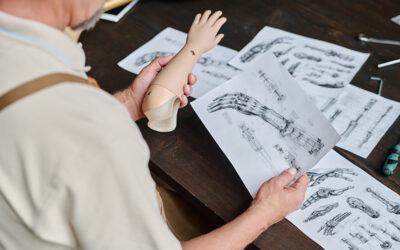When compared to other organ transplant surgeries, heart transplant is a complicated procedure that has its own risks and complications. People who undergo heart transplant surgery need to take complete medical care for the rest of their life as it helps prevent dangerous complications. Proper documentation and coding is essential to streamline the cardiology billing process. Cardiologists and other specialists performing heart transplantation procedure can choose the services of a professional medical coding company to report the diagnosis and treatments accurately on their medical claims.
Why Is Heart Transplant Performed?
Heart transplants can be performed on people of any age group. In most cases, heart transplant recipients must be between 50 and 64 years old. The procedure is also performed in children, who tend to develop heart problems by birth. Other possible causes include – weakening of the heart muscle (cardiomyopathy), coronary artery disease, heart valve disease, congenital heart defect, dangerous recurring abnormal heart rhythms (ventricular arrhythmias – not controlled by other treatments), valvular heart disease and failure of a previous heart transplant (retransplants). Retransplants occur when a person needs a second transplant to replace the first one. This can occur when the donor’s body rejects the first transplanted heart or for other reasons.
A person may not be an ideal candidate for the procedure if he/she –
- Is at an advanced age (that would interfere with the ability to recover from transplant surgery)
- Suffers an active infection
- Has another medical condition like -serious kidney, liver or lung diseases (that could shorten a person’s lifespan)
- Has a recent personal medical history of cancer
- Is unwilling or unable to make lifestyle changes necessary to keep the donor heart healthy (such as not using recreational drugs, not smoking, and limiting alcohol use)
How Is the Procedure Performed?
A heart transplant surgery is performed as soon as possible after a donor heart becomes available. Healthcare providers before undergoing the procedure will evaluate the overall health of the patient by performing several medical evaluation tests like -blood composition tests (to analyze the level of red blood cells, platelets, and more in the blood), immune system analysis, kidney function tests and tests for alcohol, tobacco and drugs. Imaging tests like -X-Ray, Computed Tomography (CT) scan, Magnetic resonance imaging (MRI) and Ultrasound (echocardiogram) will be performed. Several diagnostic tests like – Electrocardiogram (ECG or EKG), Exercise stress testing, Pulmonary (lung) function testing, Heart catheterization and Holter monitor will also be performed to evaluate the function of the heart, respiratory and circulatory systems. In addition, testing for specific diseases like -tuberculosis, HIV and Hepatitis B/C may also be performed. In addition, other tests involving a detailed psychological, neurological and dental evaluation may be done.
Heart transplant surgery is an open-heart procedure that takes several hours. The procedure begins with the surgeon administering general anesthesia. The surgeons will connect the patient to a heart-lung bypass machine to keep oxygen-rich blood flowing throughout the body. The surgeon will make an incision in the chest to separate the chest bone and open the rib cage to perform the procedure. The surgeon then removes the diseased heart and sews the donor heart into place. The major blood vessels to the donor heart are also attached. The new heart often starts beating when blood flow is restored. Patients will be given medications to help with pain control after the surgery. Patients will initially stay in the intensive care unit (ICU) for a few days and then will be moved to a regular hospital room.
Medical Codes to Report Heart Transplant
CPT Codes
- 33927 Implantation of a total replacement heart system (artificial heart) with recipient cardiectomy
- 33928 Removal and replacement of total replacement heart system (artificial heart)
- 33929 Removal of a total replacement heart system (artificial heart) for heart transplantation (List separately in addition to code for primary procedure)
- 33940 Donor cardiectomy, (including cold preservation)
- 33945 Heart transplant, with or without recipient cardiectomy
- 81595 Cardiology (heart transplant), mRNA, gene expression profiling by real-hyphentime quantitative PCR of 20 genes (11 content and 9 housekeeping), utilizing subfraction of peripheral blood, algorithm reported as a rejection risk score [Allomap]
- 0055U Cardiology (heart transplant), cell-hyphenfree DNA, PCR assay of 96 DNA target sequences (94 single nucleotide polymorphism targets and two control targets), plasma
- 0087U Cardiology (heart transplant), mRNA gene expression profiling by microarray of 1283 genes, transplant biopsy tissue, allograft rejection and injury algorithm reported as a probability score
- 71275 Computed tomographic angiography, chest (noncoronary), with contrast material(s), including noncontrast images, if performed, and image postprocessing
- 84484 Troponin, quantitative [cardiac troponins]
- 33975 Insertion of ventricular assist device; extracorporeal, single ventricle
- 33976 extracorporeal, biventricular
- 33977 Removal of ventricular assist device; extracorporeal, single ventricle
- 33978 extracorporeal, biventricular
- 33979 Insertion of ventricular assist device, implantable intracorporeal, single ventricle
- 33990 Insertion of ventricular assist device, percutaneous including radiological supervision and interpretation; arterial access only
- 33991 both arterial and venous access, with transseptal puncture
- 33992 Removal of percutaneous ventricular assist device at separate and distinct session from insertion
- 33993 Repositioning of percutaneous ventricular assist device with imaging guidance at separate and distinct session from insertion
- 93015 – 93018 Cardiovascular stress test using maximal or submaximal treadmill or bicycle exercise, continuous electrocardiographic monitoring, and/or pharmacological stress
- 93451- 93454 Cardiac catheterization
- 93798 Physician services for outpatient cardiac rehabilitation; with continuous ECG monitoring (per session)
HCPCS Codes
- L8698 Miscellaneous component, supply or accessory for use with total artificial heart system
- G0422 Intensive cardiac rehabilitation; with or without continuous ECG monitoring with exercise, per session
- S9472 Cardiac rehabilitation program, non-physician provider, per diem
ICD-10 Procedure Code
- 02YA0Z0 Transplantation of heart, allogeneic, open approach
- 02YA0Z1 Transplantation of heart, syngeneic, open approach
- 02YA0Z2 Transplantation of heart, zooplastic, open approach
Survival rates after heart transplantation vary based on a number of factors. Patients will have regular check-ups after the transplant. They will be prescribed immunosuppressants medications to reduce decrease the activity of immune system to prevent it from attacking the donated heart. Cardiac rehabilitation program may also be recommended to improve health and recover after a heart transplant.
Cardiology medical billing and coding can be challenging. Partnering with an experienced cardiology medical billing company can help providers ensure accurate reporting of the heart transplant procedure while meeting the additional claim submission requirements.




